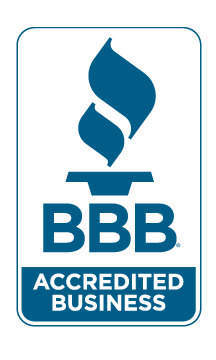As life insurance agents, we have the privilege of offering products that make a profound impact on the lives of our clients. But to truly excel in this field, it’s essential to not only understand the product but to believe in it wholeheartedly. When we believe in the product, we’re not just selling insurance; we’re providing peace of mind, financial security, and a legacy for the families we serve.
Life Insurance: A Lifeline for Families
At its core, life insurance is about protection. It’s about ensuring that, in the unfortunate event of a loved one’s passing, the family is not left to struggle financially. The loss of a spouse or partner is devastating enough; the last thing anyone should have to worry about in such a difficult time is money. Life insurance provides a financial cushion that can cover funeral costs, pay off debts, and ensure that children’s education and the family’s future are secure.
But beyond just the financial protection, life insurance offers something more profound: it provides peace of mind. When clients know that their loved ones will be taken care of, they can live their lives with less anxiety and more focus on the things that matter most. As agents, when we believe in the power of this product, we can communicate that peace of mind to our clients in a way that resonates deeply.
Tax-Free Retirement Programs: A Smart Financial Strategy
One of the lesser-known benefits of life insurance is its role in retirement planning. Many life insurance products, particularly permanent life insurance policies, offer the potential for cash value accumulation. This cash value grows tax-deferred, meaning clients won’t pay taxes on the growth until they withdraw it. And if structured properly, they can access this cash value tax-free, providing a powerful tool for retirement planning.
Imagine the difference it makes when a client can supplement their retirement income with tax-free withdrawals from their life insurance policy. It’s a smart financial strategy that can provide significant tax savings and a more secure retirement. As agents, when we understand and believe in the product, we can help our clients see life insurance not just as a safety net, but as a valuable component of a well-rounded financial plan.
Be Your Own Bank: Accessing Cash Value
The concept of “being your own bank” is one that resonates with many clients. Permanent life insurance policies with cash value components offer the unique ability for policyholders to borrow against their cash value, often at competitive interest rates. This allows them to finance major expenses, such as buying a home, funding a business, or paying for a child’s education, without the need to go through traditional banks or lenders.
What makes this feature even more powerful is that, unlike traditional loans, the money borrowed from the cash value doesn’t require a lengthy approval process, and the repayment terms are often more flexible. Clients can use their policy as a financial resource throughout their lives, creating a level of financial independence that is incredibly empowering.
When we believe in the product, we can confidently explain to our clients how life insurance can be a tool for financial freedom, not just in times of crisis, but in the everyday journey of building and enjoying their wealth.
Retirement Programs with Lifelong Income
One of the greatest fears people have as they approach retirement is outliving their income. With traditional retirement savings vehicles, there’s always the risk that a client could exhaust their savings, especially in the face of unexpected expenses or a longer-than-anticipated lifespan. However, certain life insurance products, like annuities, offer a solution to this problem.
Annuities can provide a guaranteed income stream for life, ensuring that clients never outlive their money. This is a powerful promise to make, and it’s one that can offer tremendous peace of mind to those planning for retirement. As agents, it’s our responsibility to communicate this benefit clearly and passionately. When we believe in the product, we’re able to show our clients that life insurance is not just about what happens when they die, but how it can support them throughout their lives.
Passion Drives Success
Believing in the product we offer is not just about understanding its features and benefits. It’s about having a genuine passion for what we do and the impact we can make on our clients’ lives. When we are passionate, it shows in our interactions. Clients can sense when we believe in what we’re selling, and that belief is contagious. It builds trust, and trust is the foundation of any successful client-agent relationship.
As life insurance agents, we’re not just selling policies; we’re offering solutions that can change lives. We’re helping families protect their futures, achieve financial independence, and secure a comfortable retirement. When we approach our work with passion and a deep belief in the product, we’re not just successful salespeople; we’re trusted advisors, advocates, and partners in our clients’ financial journeys.
Conclusion: The Impact of Belief
In the world of life insurance, belief in the product is everything. It’s what sets great agents apart from good ones. It’s what turns a transaction into a transformative experience. When we believe in the product, we’re able to communicate its value in a way that resonates with clients on a deeper level. We’re able to build relationships based on trust and respect, and we’re able to make a real difference in the lives of the people we serve.
So, let’s embrace the power of belief. Let’s approach each day with the knowledge that what we do matters, that the products we offer have the potential to change lives, and that our passion can inspire others to take action. When we believe in the product, we’re not just selling life insurance; we’re building legacies, one family at a time.






